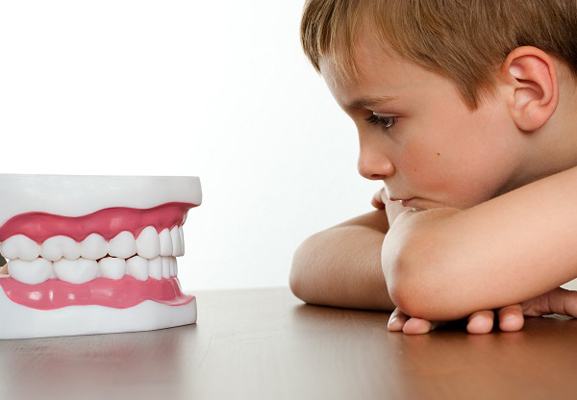What a Pediatric Dentist Wants You To Know About Cavity Treatment for Kids

Wondering about how cavity treatment for kids works? Read on to learn more. Cavity treatment for kids is the most popular reason that parents take their young ones to the dentist. No one wants to see their child suffering in pain, and cavities are the top reason that a child might have a toothache.
The first step toward protecting children from tooth decay is bringing them in for their first appointment with a pediatric dentist before they reach the age of one. A pediatric dentist offers various treatments that help prevent tooth decay, like dental sealants, fluoride treatments, and teeth cleanings. The dentist can also perform dental exams that help them determine whether cavity treatment for kids is needed.
Important things that parents should know about cavity treatment for kids
Treatments commonly used to treat tooth decay in young patients include the following:
1. Fillings
Fillings are the standard solutions for cavities. These are dental materials that are used to fill up the holes created by tooth decay so acids in the mount cannot expand them. The treatment typically involves giving the patient a shot of a local anesthetic so they do not feel pain as the dentist cleans out the tooth and removes decayed material.
Composite resin fillings are popular options because they can be matched with the color of the patient’s teeth. It makes it virtually impossible to detect when a tooth has been restored with filling.
2. Pulpotomy
A pulpotomy is performed when a child’s tooth has become infected. This procedure is similar to a root canal, but there are a few key differences. For starters, pulpotomies are mainly performed on children. Also, only a tiny portion of the tooth’s pulp is removed during a pulpotomy, compared to a root canal, which typically involves removing the entirety of the pulp.
A pulpotomy involves opening up the tooth with a dental drill so the pulp chamber can be reached. A small portion of the pulp that has been infected is removed, and medication is packed inside the tooth. The tooth is then sealed. It might be covered with a crown, depending on how damaged it is.
3. Crowns
A stainless-steel crown might be recommended for a child when one of their teeth is at serious risk of falling out prematurely due to decay. The crown is used to hold together what is left of the tooth and protect it from bite forces in the mouth.
4. Extractions
As a last resort, a dentist might recommend extracting a tooth if it is too damaged to be saved by any other treatments. Dentists rarely recommend this option because early extraction of baby teeth can lead to bite issues in the future.
FAQs about cavity treatment for kids
Here are the answers to some of the questions you might have regarding cavity treatment for kids:
How does the dentist treat cavities in children?
The dentist will usually fill the cavity with a composite filling. This type of filling is made to match the color of your child's teeth, making it less noticeable. The dentist will also seal the filling to help prevent future decay.
Do cavities in children hurt?
Cavities can cause pain when they become large enough to disturb the nerve endings in the tooth. However, small cavities may not cause any pain at all. Dentists can tell if a cavity is causing pain by examining the tooth and taking x-rays.
Will my child need anesthesia for cavity treatment?
Anesthesia may be necessary if the cavity is large or near the tooth's nerve. However, many dentists can treat small cavities without needing to administer an anesthetic. The dentist will discuss the best options for your child's particular case.
How can I help prevent cavities in my child's teeth?
You can help prevent cavities by teaching your child good oral hygiene habits and making sure they see the dentist regularly. You should also avoid giving your child sugary drinks and snacks that contribute to tooth decay.
What are the consequences of not treating a cavity?
If a cavity is not treated, it will continue to grow larger and larger. This can eventually lead to pain, infection, and tooth loss. Therefore, it is essential to have cavities treated as soon as possible.
Ready to schedule an appointment for your child?
Getting your child treatment for their cavities can bring an end to symptoms like tooth sensitivity and toothaches. Contact our dental clinic to set up an appointment for your child.
Request an appointment here: https://www.hvkidsmiles.com or call Hudson Valley Pediatric Dentistry at (845) 363-4177 for an appointment in our Middletown office.
Check out what others are saying about our services on Yelp: Read our Yelp reviews.
Recent Posts
Dental sealants are plastic coatings that protect teeth surfaces from decay. Since children are highly susceptible to cavities, pediatric dentists often recommend sealants to protect molars and premolars upon eruption. If you are considering this preventive treatment for your child, read on to learn more about the pros and cons of dental sealants.Tooth decay is…
Dental sealants safeguard the teeth against tooth decay by forming a barrier between bacterial plaque and the tooth enamel. The many tiny grooves on the surfaces of the back teeth may catch food particles. Since routine brushing cannot entirely remove them, they often stay there for an extended period. Cavities develop as a result of…
If a cavity develops and worsens, it could lead to the risk of a dental emergency due to an infection or severe discomfort. Dental sealants significantly reduce the risk of a dental emergency by helping to prevent cavities in vulnerable areas of teeth. Read on to learn how dental sealants can prevent a dental emergency…
Pediatric dentistry is a field of dental care that helps foster healthy oral habits in children and adolescents that can last a lifetime. By introducing young patients to regular dental care early on, these dental professionals and the patient's parents can set the foundation for strong, healthy teeth and gums. Here are five ways pediatric…


